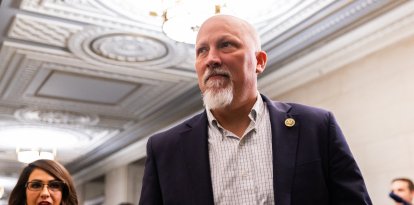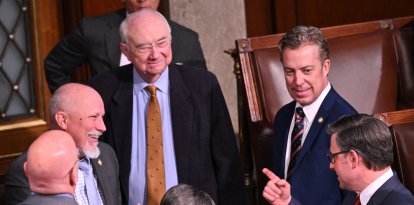Democrats turn censorship hearing into an example of censorship
Candidate Robert Kennedy testified before the House of Representatives despite attempts by his fellow candidates to silence him before and during the hearing.

(Cordon Press)
The hearing on the Biden administration's censorship ended up becoming a prime example of Democratic censorship. House Democrats tried by all means to have Robert Kennedy recalled before the session, filled their minutes at the microphone with reproaches to the candidate's alleged statements, which he himself had to deny or clarify over and over again.
Florida's Debbie Wasserman tried to silence Kennedy as soon as the session began, citing a clause in the 118 rules of the House of Representatives. As evidence that the candidate's words could be defamatory, demeaning or incriminating, she cited his remarks that COVID "disproportionately" targeted certain races. After a vote, however, the hearing was continued.
When it was his turn, Kennedy pointed out that the attempts by congressmen of his own party were evidence of the very problem that had summoned them. As an example, he showed a letter signed by 102 Democrats asking their Republican counterparts to withdraw the invitation to the presidential candidate:
He also stressed that freedom of speech was the foundation of democracy, and that censorship was antithetical to the Democratic Party of his father, uncle and the other historical figures of the party.
Thwarted in their attempts to prohibit Kennedy from speaking, Democratic representatives went on the offensive, targeting Kennedy Jr. with “defamations,” in the candidate's own words. After hearing the numerous accusations, Kennedy reviewed lies told about him and lamented that his "views are constantly misrepresented."
The Democratic politician spoke of, among other things, attacks on his campaign via social media and the suppression of dissenting voices during the pandemic, as well as mentioning the “Twitter Files.”
Biden, Inc.
Lawmakers also heard testimony from Breitbart News reporter Emma-Jo Morris. The reporter spoke about her investigations into the corruption of the Biden family. Morris explained that her revelation about Hunter Biden's laptop in 2020 was immediately labeled as false or Russian misinformation by the country's most popular social networks and mainstream media.
























